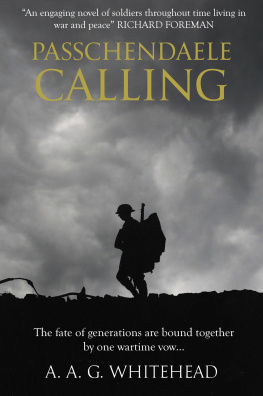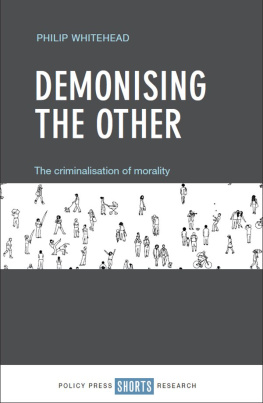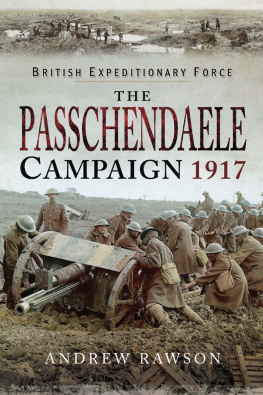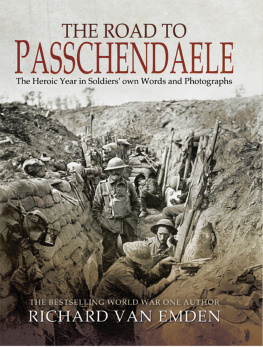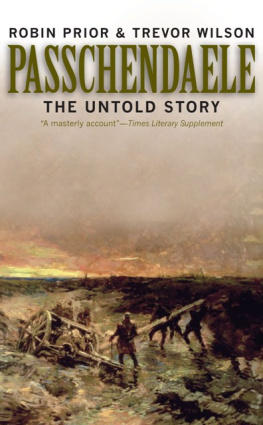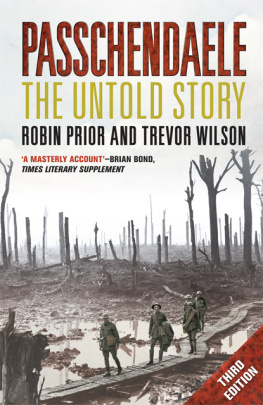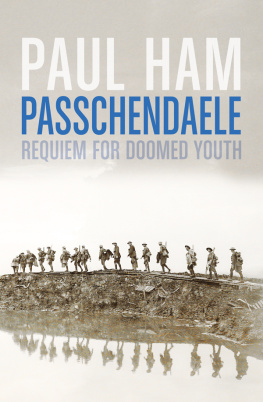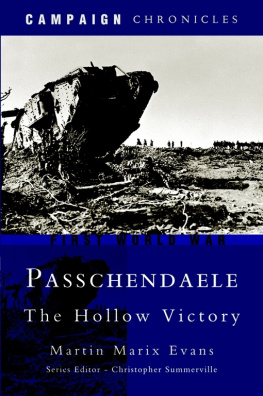Passchendaele Calling
A. A. G. Whitehead
A. A. G. Whitehead
A. A. G. Whitehead has asserted his rights under the Copyright, Design and Patents Act, 1988, to be identified as the author of this work.
This edition published in 2017 by Endeavour Press Ltd.
Aucto Splendore Resurgo, Cede Nullis,
Faithful.
To all who served in the:
68th Regiment of Foot
The Durham Light Infantry
4th Battalion, The Light Infantry
5th Battalion, The Rifles
Table of Contents
Helmand Province, Afghanistan. 2009.
It was a sweltering early August morning and Colour Sergeant Wesley Gardiner of the 5th battalion, 3 Rifles Battle Group, had been up most of the night, along with all the troops at Forward Operating Base (FOB) Musa Qala, in Musa Qala District in Helmand Province, Afghanistan. As part of Operation Herrick 11, they were a force of 600 soldiers supported by gunners, engineers and medics from other sections of the British Army. Their mission was to maintain control of the fertile upper Helmand Valley around the town of Sangin and the strategically important Kajaki Dam. The Taliban had launched an attack under the cover of darkness using their customary weapons of choice, the Chinese-made 107mm rocket propelled grenades (RPGs) and, of course, every terrorist/insurgents friend, the Kalashnikov (AKs ranging from the earliest 47s right up to the 74s). The attack on the FOB came from three sides, and involved maybe as many as fifty militants. The Taliban forces were intercepted by Afghan troops on their way to the FOB, and again on the way back out but that time they had been supported by Army Air Corps Apache gunships. The attack was easily repulsed, and the Taliban suffered approximately 20 killed with no coalition forces injured. There was one side that was not attacked, which was the side facing a small tributary of the Musa Qala River. This was the reason in the first place for selecting the site for a unit of Royal Engineers to build the FOB and surround the whole compound and the helicopter landing pad with a double rampart of HESCO barriers, despite the harassing Taliban fire at the time.
Musa Qala, or the Fortress of Moses, is a town and the district administrative centre. It sits at the confluence of the river and a large wadi, on a high point overlooking the area. It also was the site of an old Afghan fort, hence the name referring to a fortress. It is in a desolate area, populated by a community of 2,000 to 20,000 (depending who you listened to) native Pashtuns. At a point midway up the valley at 1043 metres altitude it got the heat and the wind, which made it a dust bowl of gritty misery requiring regular maintenance for all kit.
Wes, as he was known to his troops when out of earshot of senior officers, was proud of his achievements within 3 Rifles. Colour sergeant (CSgt) is a non-commissioned title in the infantry regiments of the British Army, ranking above sergeant and below warrant officer class 2. Not bad for a lad who struggled, mainly due to lack of interest, at his local schools in County Durham. When he followed in the family tradition of joining the army and found something that did interest him he had surprised himself by proving that in actual fact he was not thick and could be good at something.
Not only was Wes proud of his achievements, but he was also immensely proud of the tradition of the regiment, whose lineage could be traced back to before the Peninsular War and the Duke of Wellington. He wasnt exactly sure, but he had heard his father talk of generations dating back to that period, with Salamanca and Vitoria appearing on the battle honours of the 68th (Durham) Regiment of Foot, before it became the Durham Light Infantry (DLI) in 1908. His father had served in the DLI in Northern Ireland, before dying of cancer when he was still young. His grandfather had also served in the regiment during the Second World War, fighting across Europe and being one of the first into the Belsen concentration camp just before the collapse of the Nazis. Wes had heard his grandfather talk of his own father, who would be Wess great-grandfather, seeing action in the First World War. Yes, that lineage was also something to be proud of. Nobody could say that the County Durham Gardiners hadnt served king, queen and country well!
Just then his attempt at losing himself from the heat by remembering the past was shattered by shouting from the front gate. He was up and moving in one swift motion. Surely after the kicking the Taliban had got last night they wouldnt really want to try their luck in broad daylight?
What is it, Jonno? he shouted, on approaching the sentry who had raised the alarm.
Weve got a bunch of ragheids coming up to the barrier, Colour Sergeant.
Jonno, what have I told you about using that terminology? Especially in front of our translator; and the major wont be too far away, either!
Jonnos expression said it all: he realised that he shouldnt have used the term and quickly tried to recover the situation. Er, some of the village elders are approaching the barrier, Colour Sergeant!
Wes entered the sangar, which protected the approach to the main gate, and looked down on three elderly locals who he recognised and a slightly younger man with a black turban who wasnt familiar to him.
Jonno, you and Alfie check them over and then let them in. Well see what they have to say about last nights events.
Yes, Colour Sergeant!
Within a few minutes three elderly Pashtun tribesmen, plus the stranger, entered and by that time Major Oswald and the base translator, Shahid, were waiting to welcome them.
With the usual welcoming niceties completed, the spokesman and the most senior member of the village set about complaining about the damage done to the village following the firefight. It was clear to see the three older men were not at ease with the presence of the fourth. It wasnt unusual for the Taliban to enter in this kind of way. They probably had the old mans family at gunpoint somewhere. During the conversation the younger man couldnt help himself, he kept looking around at the defences; with his black turban and his manner he might as well have had Taliban written on a big plaque above his head. As usual, and as a precaution, everything was kept out of sight as best as it could be in such a small, cramped base, so there was very little for him to gain. At last the elder man got to the point that he had a medical issue with his son; he had cut himself whilst out in the fields and the wound had started to fester. The old man was taken to one side where the medic gave him some antiseptic cleaning fluid and fresh bandages. It was at this point he managed to talk to Shahid privately and give him the information which was the real point of the visit.
The locals wanted rid of the Taliban as much as the government in Kabul did. The problem was that they didnt want the government, either, and with the President of Afghanistan, Hamid Karzai, being a Pashtun, it showed just how complex Afghan politics really were. The information was basically that twenty-three Taliban had been killed, but there had been a recent reinforcement of fighters from Pakistan, so they intended attacking again later in the week. The route that the Taliban had used was along the river bank, well under the cover of the green zone, following a dry wadi bed which ran around the side of the village. This got them to within one hundred metres of the main entrance to the base, from where they launched their attack. They had travelled down from Baghran, which was some distance north of Masa Qala, following the river.
This represented a return to the bolder attacks of previous years. Recently the Taliban had been getting a regular kicking, just like the one last night when they took the Coalition forces head on. It was only a couple of years back, in 2006, twenty-five kilometres to the south, that Sangin, a major town in the area, was under siege. The Taliban had killed five civilians in the June, accusing them of working for the government, and a further twenty-seven shortly afterwards, when the relatives went to collect the bodies. A run-down compound acting as the district centre (DC) became home to some one hundred and twenty British troops, Afghan police and local government officers. With no contact with the Taliban, the attitude of the inhabitants was passive to start with, but then it suddenly changed. Taliban attacks increased to five or six a day, including fire from RPG-7 anti-tank rocket launchers. With the roads from Camp Bastion cut off, the entire town was effectively isolated, resupply being by helicopter only. Each attack was repulsed, as British troops posted on the DC rooftop directed fire from artillery, mortars, and airstrikes from attack helicopters and jets against the Taliban, inflicting heavy losses. These heavy losses sustained by the Taliban took their toll and that was the start of the gradual switch from direct confrontation to the more insidious tactic of ambushing patrols and the use of Improvised Explosive Devices (IEDs).

